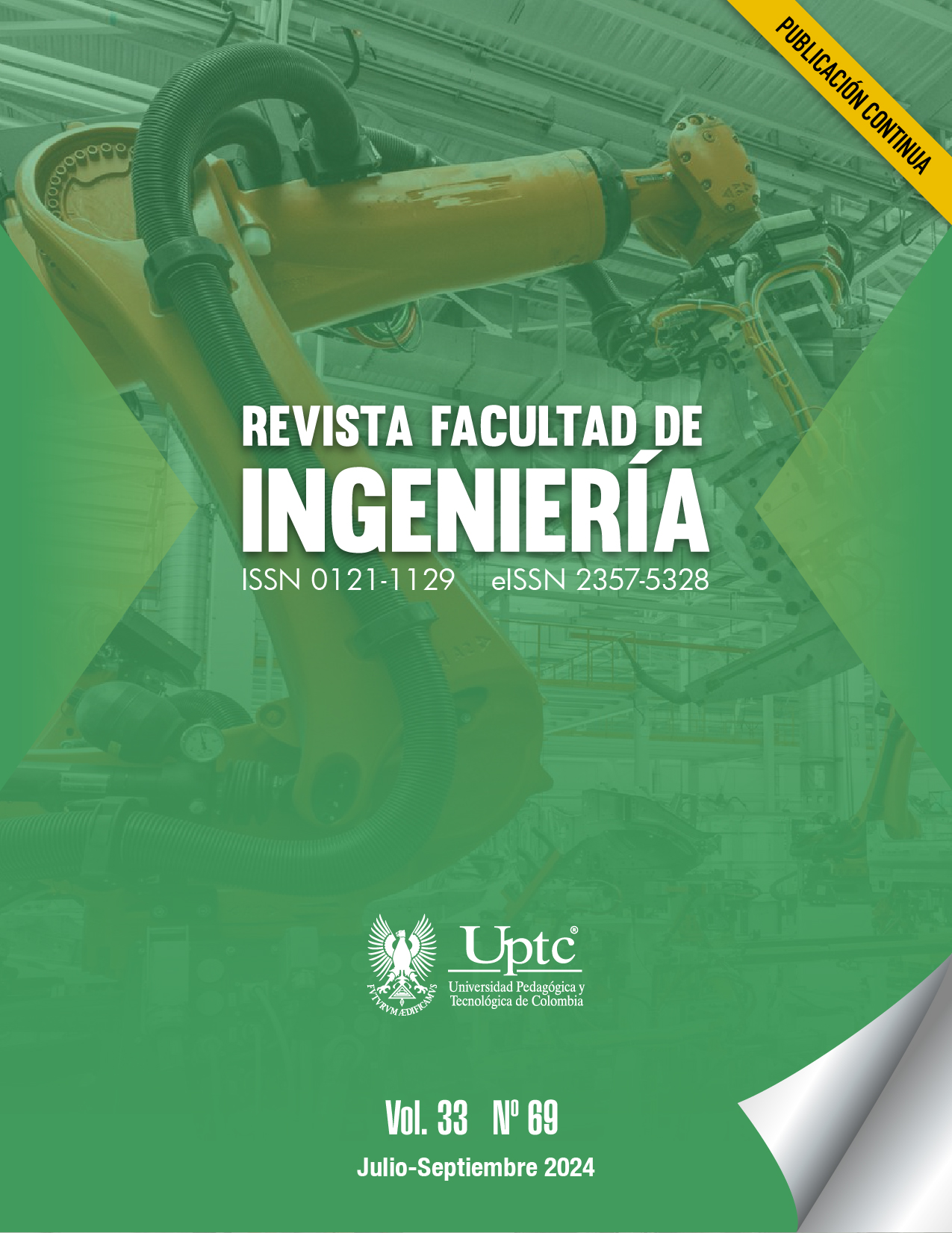Comparative Study of Cuckoo-Inspired Algorithms to Solve Large-Scale Continuous Optimization Problems

Abstract
Two distinctive behaviors of the cuckoo bird have inspired several metaheuristic algorithms to solve continuous optimizationproblems. In addition to the well-known parasitic breeding behavior that gave rise to several cuckoo search (CS) algorithms, another behavior related to their clustering and the way they locate food sources has given rise to the COA algorithm. As a result, there are several variants to solve continuous optimization problems; however, it is necessary to define which one is the most suitable under specific requirements. This paper compares six of these algorithms, including CS+LEM (proposed in this paper), which consists of a hybridization of the CS algorithm with learning evolutionary models (LEM) using an approach known as “metaheuristics enhanced by artificial intelligence”. Three assessments were performed using a set of 61 continuous test functions: 1) the optimal value achieved with a fixed execution time; 2) the number of objective function evaluations required to reach the global optimum; and 3) the optimal value achieved with a fixed number of objective function evaluations. CS+LEM presents the best results in evaluation 1, while COA presents the best results in evaluations 2 and 3. The results were analyzed using the Friedman and Wilcoxon nonparametric statistical tests.
Keywords
artificial intelligence, Cuckoo search algorithm, large-scale continuous problems, metaheuristics, optimization
Author Biography
Carlos-Alberto Cobos-Lozada
Profesor de Planta Titular Tiempo Completo
Departamento de Sistemas
Facultad de Ingeniería Electrónica y Telecomunicaciones
Universidad del Cauca
References
- L. Velasco, H. Guerrero, A. Hospitaler, “A Literature Review and Critical Analysis of Metaheuristics Recently Developed,” Arch. Comput. Methods Eng., 2023. https://doi.org/10.1007/s11831-023-09975-0
- R. R. Abo-Alsabeh, A. Salhi, “The Genetic Algorithm: A study survey,” Iraqi J. Sci., vol. 63, no. 3, pp. 1215-1231, 2022. https://doi.org/10.24996/ijs.2022.63.3.27
- F. Neri, C. Cotta, “Memetic algorithms and memetic computing optimization: A literature review,” Swarm Evol. Comput., vol. 2, pp. 1-14, 2012. https://doi.org/10.1016/j.swevo.2011.11.003
- V. K. Prajapati, M. Jain, L. Chouhan, “Tabu Search Algorithm (TSA): A Comprehensive Survey,” in Proceedings of 3rd International Conference on Emerging Technologies in Computer Engineering: Machine Learning and Internet of Things, 2020, pp. 222–229. https://doi.org/10.1109/ICETCE48199.2020.9091743
- N. Nayar, S. Gautam, P. Singh, G. Mehta, “Ant Colony Optimization: A Review of Literature and Application in Feature Selection,” in Lecture Notes in Networks and Systems, 2021, pp. 285-297. https://doi.org/10.1007/978-981-33-4305-4_22
- A. G. Gad, “Particle Swarm Optimization Algorithm and Its Applications: A Systematic Review,” Arch. Comput. Methods Eng., vol. 29, no. 5, pp. 2531-2561, 2022. https://doi.org/10.1007/s11831-021-09694-4
- I. Sharma, V. Kumar, S. Sharma, “A Comprehensive Survey on Grey Wolf Optimization,” Recent Adv. Comput. Sci. Commun., vol. 15, no. 3, pp. 323-333, 2022. https://doi.org/10.2174/2666255813999201007165454
- J. Li, X. Wei, B. Li, Z. Zeng, “A survey on firefly algorithms,” Neurocomputing, vol. 500, pp. 662-678, 2022. https://doi.org/10.1016/j.neucom.2022.05.100
- D. Karaboga, B. Akay, “A comparative study of Artificial Bee Colony algorithm,” Appl. Math. Comput., vol. 214, no. 1, pp. 108-132, 2009. https://doi.org/10.1016/j.amc.2009.03.090
- M. F. Ahmad, N. A. M. Isa, W. H. Lim, K. M. Ang, “Differential evolution: A recent review based on state-of-the-art works,” Alexandria Eng. J., vol. 61, no. 5, pp. 3831-3872, 2022. https://doi.org/10.1016/j.aej.2021.09.013
- F. Qin, A. M. Zain, K.-Q. Zhou, “Harmony search algorithm and related variants: A systematic review,” Swarm Evol. Comput., vol. 74, 2022. https://doi.org/10.1016/j.swevo.2022.101126
- E. Ruano-Daza, C. Cobos, J. Torres-Jimenez, M. Mendoza, A. Paz, “A multiobjective bilevel approach based on global-best harmony search for defining optimal routes and frequencies for bus rapid transit systems,” Appl. Soft Comput. J., vol. 67, pp. 567-583, 2018. https://doi.org/10.1016/j.asoc.2018.03.026
- S. Salhi, J. Thompson, “An overview of heuristics and metaheuristics,” in The Palgrave Handbook of Operations Research, 2022, pp. 353-403. https://doi.org/10.1007/978-3-030-96935-6_11
- X.-S. Yang, S. Deb, “Cuckoo Search via Lévy flights,” in 2009 World Congress on Nature & Biologically Inspired Computing (NaBIC), 2009, pp. 210-214. https://doi.org/10.1109/NABIC.2009.5393690
- K. Safdar, K. N. Abdul Rani, H. A. Rahim, S. J. Rosli, M. A. Jamlos, “A Review on Research Trends in using Cuckoo Search Algorithm: Applications and Open Research Challenges,” Prz. Elektrotechniczny, vol. 1, no. 5, pp. 18-24, 2023. https://doi.org/10.15199/48.2023.05.04
- E. Valian, S. Mohanna, S. Tavakoli, “Improved Cuckoo Search Algorithm for Feed forward Neural Network Training,” Int. J. Artif. Intell. Appl., vol. 2, no. 3, pp. 36-43, 2011. https://doi.org/10.5121/ijaia.2011.2304
- S. Walton, O. Hassan, K. Morgan, M. R. Brown, “Modified cuckoo search: A new gradient free optimisation algorithm,” Chaos, Solitons and Fractals, vol. 44, no. 9, pp. 710-718, 2011. https://doi.org/101016/jchaos201106004
- M. Tuba, M. Subotic, N. Stanarevic, “Modified Cuckoo Search Algorithm for Unconstrained Optimization Problems,” in Proc. 5th Eur. Conf. Eur. Comput. Conf., pp. 263-268, 2011. http://www.wseas.us/e-library/conferences/2011/Paris/ECC/ECC-43.pdf
- R. Rajabioun, “Cuckoo Optimization Algorithm,” Appl. Soft Comput., vol. 11, no. 8, pp. 5508-5518, 2011. https://doi.org/10.1016/j.asoc.2011.05.008
- J. Li, Q. An, H. Lei, Q. Deng, G.-G. Wang, “Survey of Lévy Flight-Based Metaheuristics for Optimization,” Mathematics, vol. 10, no. 15, e2785, 2022. https://doi.org/10.3390/math10152785
- R. S. Michalski, “Learnable evolution model: evolutionary processes guided by machine learning,” Mach. Learn., vol. 38, no. 1, pp. 9-40, 2000. https://doi.org/10.1023/a:1007677805582
- A. L. da Costa Oliveira, A. Britto, R. Gusmão, “Machine learning enhancing metaheuristics: a systematic review,” Soft Comput., 2023. https://doi.org/10.1007/s00500-023-08886-3
- C. Cobos, D. Estupiñán, J. Pérez, “GHS + LEM: Global-best Harmony Search using learnable evolution models,” Appl. Math. Comput., vol. 218, no. 6, pp. 2558-2578, 2011. https://doi.org/10.1016/j.amc.2011.07.073
- P. N. Suganthan et al., “Problem definitions and evaluation criteria for the CEC 2005 special session on real-parameter optimization,” Singapore, 2005. http://www.cmap.polytechnique.fr/~nikolaus.hansen/Tech-Report-May-30-05.pdf
- K. Tang et al., “Benchmark functions for the CEC’2008 special session and competition on large scale global optimization,” in IEEE World Congress on Computational Intelligence, Rio de Janeiro, Brazil: IEEE, 2008, pp. 1-18. http://sci2s.ugr.es/programacion/workshop/Tech.Report.CEC2008.LSGO.pdf
- T. Ke, L. Xiaodong, S. P. N., Y. Zhenyu, W. Thomas, “Benchmark Functions for the CEC’2010 Special Session and Competition on Large-Scale Global Optimization,” Shanghai, China, 2010. http://goanna.cs.rmit.edu.au/~xiaodong/cec13-lsgo/competition/cec2013-lsgo-benchmark-tech-report.pdf
- M. Molga, C. Smutnicki, “Test functions for optimization needs,” Test functions for optimization needs, pp. 1-43, 2005. https://robertmarks.org/Classes/ENGR5358/Papers/functions.pdf
- D. H. Wolpert, W. G. Macready, “No free lunch theorems for optimization,” IEEE Trans. Evol. Comput., vol. 1, no. 1, pp. 67-82, 1997. https://doi.org/10.1109/4235.585893